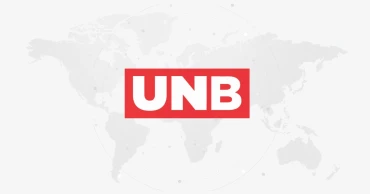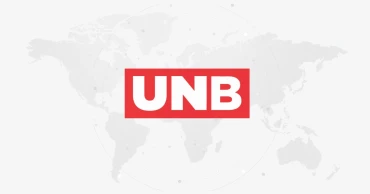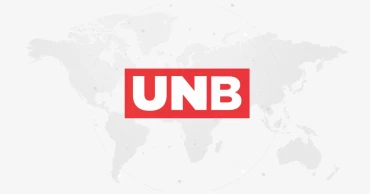RMG exports
RMG exports surge 12% in July-January, reaching $23.55 billion
Bangladesh’s RMG exports witnessed a growth of 12% during July 2024-January 2025, reaching a total of USD 23.55 billion, indicating a positive trend.
However, when comparing the RMG export figures of July 2024-January 2025 with that of July 2022-January 2023, the growth was only 1.38%.
After experiencing consecutive double-digit growth in the past four months (September-December), the growth in January 2025 slowed down to 5.57%, with a single-month export value of USD 3.66 billion, said Mohiuddin Rubel, former director of BGMEA on Monday.
Bangladesh's RMG exports reach $38.48 billion in 2024, with strong growth in non-traditional markets
The knitwear sector posted a relatively higher growth of 6.62%, while the woven garment export growth recorded 4.52%.
While the growth figures are encouraging, they do not fully reflect the challenges faced by the industry, particularly the pressure on prices and costs.
Further analysis is required to identify the specific factors influencing this trend, such as market-specific performance, product and market concentration, and other variables, Rubel said.
The global trade is estimated to have shrunk significantly last year, leading to intense price competition.
Amidst the looming trade war, there are some opportunities for Bangladesh's RMG sector, he said.
However, several priorities need to be addressed to support business operations, including energy security and financial/banking sector stability, Rubel said.
Another 4% hike in annual increment recommended for RMG workers
1 year ago
Guardian article on female garment workers in Bangladesh not only offensive but also a gross overgeneralization: BGMEA Chief
A recent article published by The Guardian, framing the lives of female garment workers in Bangladesh between factory and brothel, is not only offensive but also a gross overgeneralization, BGMEA President Faruque Hassan has said.
It risks overshadowing the remarkable transformation of women's empowerment propelled by the nation's RMG industry, he said in a statement, condemning the article that he said “defames women at work.”
"It’s true that individual hardships exist, but framing women workers within a single struggle is potentially harming them by provoking radicalism, causing social stigma and mental illness," Faruque said.
Such a narrative is a disservice to their lives and dreams they cherish, he said.
“The report itself appears to be incorrect to us as it says that the mentioned female worker works for a large factory, it didn’t mention the name; and there is hardly any export-oriented garment factory located at the place as the report mentions, except for a few tailoring facilities catering to the local market only,” he said.
“The report does not only perpetuate harmful stereotypes against women at work, but also defames an industry that employs millions of women and contributes significantly to national economy," said the BGMEA chief.
Rest of the BGMEA chief's statement
Consider this: in a moderate Muslim country, Bangladesh has emerged as a model in the region in women’s empowerment and gender parity, he said.
“The World Economic Forum's recent Gender Gap Report places Bangladesh at the top in South Asia for gender equality for the 9th consecutive year, ranking the country 59th globally.
“The labor force participation rate of women has soared from a mere 8% in 1983 to a remarkable 38% today.
Read: Despite anticipated challenges in 2024, int’l market demand for RMG products could rise: BGMEA Director
“Women’s contribution to Bangladesh's GDP growth is estimated at a staggering 34% and it continues to rise.
“For millions of less privileged women having less literacy and skills, the RMG industry is the first formal sector of employment.
“Through this industry, women have emerged as the critical support for their families, achieving economic independence and social empowerment.
“Early marriage and motherhood are declining, primarily education enrolment is on the rise and as per many experts, the industry has led to increase in girls’ schooling.
“Maternal and child health, too, have gained momentum, nourished by improved nutrition and a heightened awareness of healthcare.
“The ascent isn't confined to the shop floor. Women are scaling the ranks, their talents are gracing technical departments in the industry like industrial engineering, product designing and merchandising, as well as taking on leadership positions.
“When they leave the factories, they leave footprints of entrepreneurial spirit, transforming into owners of their own businesses.
Read: Sustainable fashion: Bangladesh's RMG sector leads with 24 new LEED green factories in 2023
“This industry has become a launchpad for leadership.
“While writing a report remotely, without having proper understanding of the background and reality, to deliberately portray the bleak picture, one must acknowledge the broader narrative – millions of women rising from poverty, gaining skills, and forging a path towards brighter futures for themselves and their families.
“Beyond all these, the industry has taken an unprecedented stance to support aspiring women workers to pursue their dream for higher education.
“Currently around 90 young female RMG workers are pursuing higher studies in the Asian University for Women under the Pathways for Promise program.
“While the girls pursue their bachelor studies with full scholarship from the university, the employer factories continue to pay the full wages to them throughout the entire tenure of their study.
“The ‘promise’ is to make them fearless and think big. Not only that, through this industry women have got the opportunity to emerge as the critical support to the family.
“There are numerous instances that the sons and daughters of workers are pursuing higher education in engineering, medical science and many more disciplines through the humble support of the factories.
“This is our story, one of transformation, of empowerment, of women rising like threads on a loom, weaving a new Bangladesh. Let us move beyond sensationalized headlines and acknowledge the multifaceted reality of women at work.
Read more: Milestone for RMG as Bangladesh becomes top source of Knitwear into EU market
“Let us celebrate their achievements, address their challenges, and work towards a future where all Bangladeshi women can thrive, in factories and beyond.
“Our garment workers are the heartbeat of our industry, and I, for one, find my strength in their courage, their resilience, and their unwavering spirit. They are the threads that bind our nation together, the driving force propelling us towards a future where gender is not a barrier, but a bridge – a future where Bangladeshi women stand tall, not just as workers, but as architects of their own destinies.”
2 years ago
Despite anticipated challenges in 2024, int’l market demand for RMG products could rise: BGMEA Director
Despite the anticipated challenges in 2024, there are indications that international market demand for RMG products will rise, a director at BGMEA said today (January 01, 2024).
"If we can uphold internal supply chains, increase investments in new products and markets, we will be able to sustain the desired growth," said BGMEA Director Mohiuddin Rubel in a statement.
He said it is difficult to predict the trajectory for 2024, given the uncertainties in the international economic and geopolitical landscape.
BGMEA chief emphasizes innovation, tech upgrade, skills training to retain global competitiveness
Factors such as supply chain disruptions and inflation play a crucial role here.
Additionally, there are pressures on the internal economy, including a decline in foreign exchange reserves and the significant challenge of keeping inflation in check, Rubel said.
Furthermore, he said, the protection of industries is very important to attract investments and maintain competitiveness.
The global scenario for the apparel sector in 2023 was not as good as 2022.
According to the WTO, global apparel exports reached $576 billion in 2022.
Rubel said, clothing imports from Europe and America have already decreased.
Refrain from programmes which hamper country, economy: BGMEA President
He said the two main markets for Bangladesh when assessed collectively were not able to put any remarkable impact to "our growth".
On the other hand, Rubel said, RMG exports to non-traditional markets saw a substantial increase.
In summary, he said, growth in non-traditional markets has contributed to the overall growth in Bangladesh’s RMG exports.
Sustainable fashion: Bangladesh's RMG sector leads with 24 new LEED green factories in 2023
2 years ago
RMG exports to EU grew 9.93% in FY 2022-23: Export Promotion Bureau
RMG exports from Bangladesh to the European Union (EU) saw 9.93 percent growth during the fiscal year 2022-23 — from $21.40 billion in FY 2021-22 to $23.52 billion in FY 2022-23, according to the Export Promotion Bureau (EPB).
Read: Bangladesh to retain duty-free access for 98% of exports, including RMG as UK introduces new scheme
However, exports to some major markets in the EU region, such as Germany and Poland, have declined significantly, said BGMEA Director Mohiuddin Rubel quoting the facts.
In FY 2022-23, apparel exports to Spain, France, Italy, Denmark and Netherland were worth US$ 3.37 billion, US$ 2.94 billion, US$ 2.27 billion, US$ 1.28 billion, and US$ 1.85 billion respectively.
Read: Elevated Expressway’s Airport-Farmgate section to open in September: Quader
Export to USA, the top apparel export destination of Bangladesh, declined by 5.51 percent to US$ 8.51 billion, from US$ 9.01 billion in FY 2021-22, in the mentioned period.
At the same time, RMG exports to the UK and Canada increased by 11.78 percent and 16.55 percent respectively.
During the mentioned year, Bangladesh’s exports to non-traditional markets has achieved significant growth of 31.38 percent.
Read: RMG exports in FY23 almost $47bn, 85% of total exports
Among the major non-traditional markets, exports to Japan, Australia and India crossed the one billion dollar milestone.
The share of non-traditional markets in total RMG export also increased by 17.82 percent in FY 2022-23 from 14.96 percent in FY 2021-22.
2 years ago
BGMEA seeks Russian support for RMG exports
Bangladesh Garment Manufacturers and Exporters Association (BGMEA) has sought cooperation from Russia to remove the bilateral trade barriers and facilitate exports of readymade garments and other Bangladeshi products to its market.
Russian Ambassador to Bangladesh Alexander Vikentyevich Mantytskiy called upon BGMEA President Faruque Hassan in the capital Thursday.
They had discussions on various trade-related issues, especially how bilateral trade could be enhanced.
Read: BGMEA urges BBCCI to promote more trade between Bangladesh, UK
BGMEA President Faruque Hassan said Russia is a promising market where there is a great demand for Bangladeshi garments. "But barriers to transactions through banking channels and tariff complications are stumbling blocks to apparel exports to the country."
BGMEA Vice-President Miran Ali and First Secretary at the Russian Embassy in Dhaka Anton Vereshchagin were also present.
4 years ago
BGMEA wants better cargo handling services at Dhaka airport
Bangladesh Garment Manufacturers and Exporters Association (BGMEA) has urged the government to improve cargo handling services at Hazrat Shahjalal International Airport to facilitate ready-made garments (RMG) exports.
A BGMEA delegation led by Acting President SM Mannan made the request to State Minister for Civil Aviation and Tourism Md Mahbub Ali during a meeting held at the secretariat Thursday.
BGMEA Vice-President Md Nasir Uddin; directors Md Mohiuddin Rubel, Md Khosru Chowdhury and Rajiv Chowdhury also attended the meeting.
READ: BGMEA wants to increase RMG exports to Canada, promote positive image
The BGMEA leaders called for increasing the number of explosive detection scanners (EDS) at the airport to speed up the process of export cargo scanning.
They also focused on regularly carrying out maintenance of the existing two EDS as one of them often remains out of service due to the lack of proper maintenance.
READ: BGMEA chief invites Canadian businessmen to invest in Bangladesh
The BGMEA delegation called on bringing RMG goods inside the cargo village or canopy immediately after unloading from aircraft so that they are not damaged due to rain.
They also called for taking steps to make loading and unloading of RMG cargoes faster and properly stacking them in the cargo shed so that goods can easily be found and released quickly.
4 years ago
BGMEA wants to increase RMG exports to Canada, promote positive image
Bangladesh Garment Manufacturers and Exporters Association (BGMEA) President Faruque Hassan has sought support from the Bangladesh envoy in Canada to increase the country's share of apparel exports in a potential market like Canada, especially in the area of high-end and diversified apparel products.
He met Bangladesh High Commissioner to Canada Dr Khalilur Rahman in Ottawa recently and discussed relevant issues.
BGMEA Director Abdullah Hil Rakib was also present at the meeting.
The BGMEA president also requested the envoy to project the positive stories of Bangladesh's apparel industry – namely, remarkable progress workplace safety, social and environmental sustainability and workers' wellbeing.
READ: BGMEA urges Canadian buyers to take more garments from Bangladesh
He emphasised the efforts and role of the high commission in Canada in securing the continuation of trade benefits for Bangladesh for 12 years after the country's graduation from the least developed country (LDC) category in 2026.
Faruque also sought cooperation from Khalilur Rahman in finding ways to involve non-resident Bangladeshis (NRBs) living in Canada in the economic development of Bangladesh.
READ: BGMEA seeks Govt support for RMG sector to overcome pandemic challenges
He informed the envoy about the present situation of Bangladesh's ready-made garment (RMG) industry, especially how the industry has been rebounding following the unprecedented disruption caused by the Covid-19.
Faruque also shared the future priorities of the apparel industry, including product diversification, especially increased focus on non-cotton and high-end product segments, market diversification and innovation in product development and process optimisation.
4 years ago










